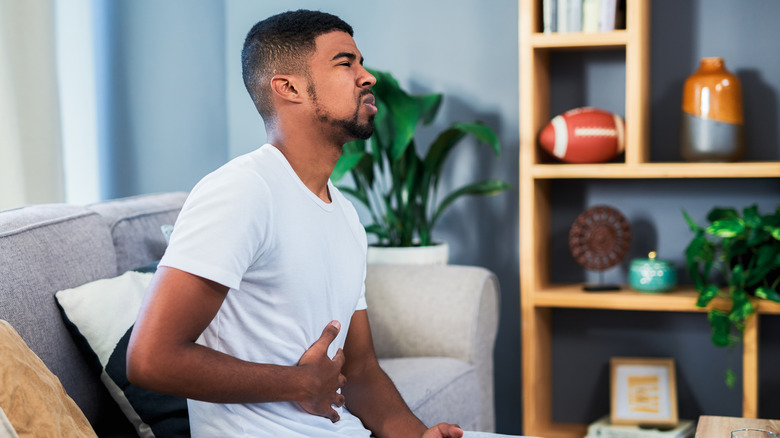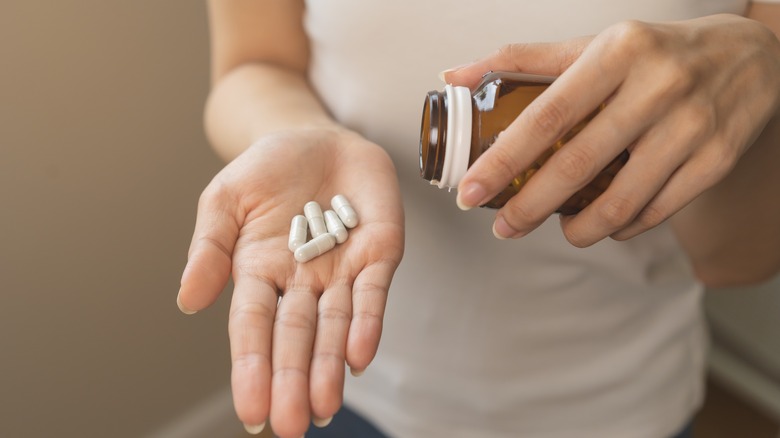Why You May Feel Sick To Your Stomach After Taking Vitamins (And How To Prevent It)
More than half of the people in the United States take an occasional dietary supplement during any given month, according to the Centers for Disease Control and Prevention (CDC). Whether it's a multivitamin, a fish oil supplement, or a B12 supplement (extra important for vegan diets), your stomach could feel funky every once in a while. Certain supplements (as well as certain conditions) can make you feel nauseated.
For example, certain vitamins (like vitamin C) have more acid in them, so taking acidic vitamins on an empty stomach might cause you to feel queasy. Iron supplements or an iron-enriched multivitamin might also cause nausea if you're taking them without food. Your medications (and even other vitamins) could also be interacting with your vitamins to make you feel sick. Some vitamin supplements could have a megadose of a particular vitamin, which can also could overwhelm your system, according to Mountain Peaks Family Practice. Check your supplement label for the amounts of vitamins A, D, and E. Too high of a dose of these vitamins in your pills could be a likely culprit for your nausea.
How to prevent getting sick from vitamins
Because vitamin C helps with iron absorption, it's best to take these two together with a little bit of food. Take a look at the labels of your vitamins to see which supplements to take with food and which ones are better absorbed on an empty stomach, like vitamins A, D, E, and K. Be sure your doctor knows which vitamin supplements you're taking. They can help you determine if your vitamins are interfering with the absorption of your medications.
Taking vitamins before a good workout might sound like a good idea, but it might disrupt your digestive system, according to Cleveland Clinic. Instead, take the vitamins with your post-workout meal. Some vitamins might be easier on your system if they come in a chewable or powder form. If you know a certain vitamin makes you sick, try splitting the dose in half. Take one dose in the morning and one in the evening.
Do you need vitamin supplements?
Your doctor is the best source to know if you have vitamin deficiencies. According to Mountain Peaks Family Practice, you might not need a vitamin supplement unless you're over 60, pregnant, or vegan. Consider getting your vitamins from healthier dietary choices if specific supplements are making you sick.
There are also some health risks associated with high doses of certain vitamins and minerals, according to Harvard Medical School. For example, too much vitamin A (as beta carotene) is associated with an increased risk of lung cancer in people who smoke. Popping too many calcium and vitamin D supplements is linked to kidney stones, and megadoses of vitamin E can lead to bleeding in the brain. Vitamin B6 may improve your mood and protect your heart, but too much vitamin B6 over a long time might increase your risk of nerve damage. Remember that the Food and Drug Administration doesn't regulate vitamin supplements, so there's no guarantee that the promises on the vitamin label will provide the health benefits you seek.


